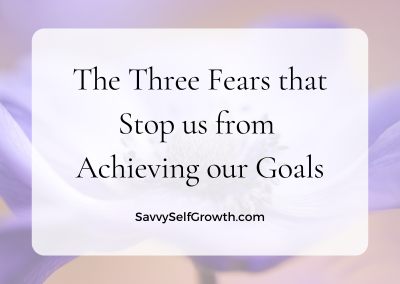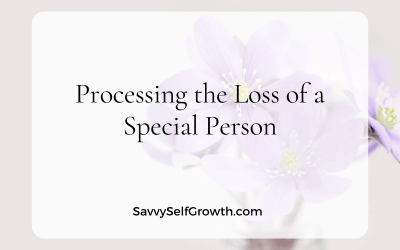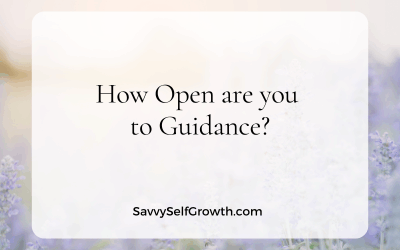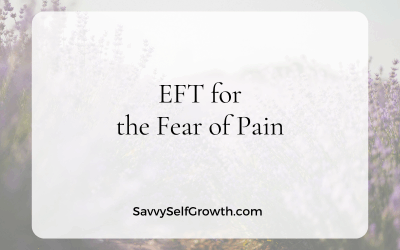How many times have you set a goal or intention for yourself that feels and sounds so exciting to accomplish – and then never did anything about it? We’ve all done it.
Think about something that you don’t already have, and would like to achieve, be, do or have. A new job? A shiny new car? A certain amount of money in the bank? A new relationship? A new way you want to “be” in the world, like more visible, more peaceful or show more leadership?
Chances are, as you’re thinking about your goal – one of three fears could stop you from even trying. We fear something because it’s caused us pain in the past. Human beings are designed to avoid pain at all costs and go towards pleasure. Why risk running into pain?
Let’s dissect the fears before they can sink their sharp teeth into your goal.
- Fear #1: I’m going to lose something – we’ll call this “loss pain”.
- Fear #2: It’s going to be an unpleasant process – we’ll call this “process pain”.
- Fear #3: The outcome is going to be unpleasant – we’ll call this “outcome pain”.
Fear # 1: Loss Pain
Loss is painful in anyone’s books! We’re going to try to avoid loss if we can. Loss hurts in the heart area and sometimes it’s accompanied by grief and regret as well. We’re attached to what we already have and would do anything to try and avoid loss.
Examples of this fear could be
- If I go for this new job, I’ll lose my friends at the old job
- If I lose weight, I’ll lose the old friends who used to go out for meals/drinks/snacks with me
- If I enter a new relationship, I could lose my independence and autonomy
- If I am more visible, I’ll lose my ability to “hide” when I feel like it, and people might expect more of me
Fear # 2: Process Pain
Generally if we want to accomplish a goal, we have to “do” something to get it. And the crux is, it’s mostly going to need to be something different than we’ve already been doing. If what we’d been doing worked to get us the goal, we would have had it already, right? So generally – goals require action, which may stretch us out of our comfort zone. And we’re all trying as hard as we can to stay inside our comfort zone.
Examples of this fear could be:
- If I go for this new job, I have to go for an interview – and I’m not good with interviews. I get anxious, nervous and my mouth goes dry. So I’ll just stay in my current job to avoid that.
- If I lose weight, I’m going to have to “give up” some of my favourite foods. And I can’t bear feeling deprived. I’ll have to eat things I’m not used to. So I think I’ll just keep doing what I’m doing, it’s too uncomfortable to change my eating habits.
- If I go looking for a new relationship, I may have to go on a “first date” and everybody knows how uncomfortable they are. I might say something stupid and completely ruin my chances of going on a second date, and then I’d have to do a first date all over again. No thanks, I’ll stay single and enjoy my independence. I can “cope” with the loneliness for now.
- If I am more visible, I may have to talk in front of people and that’s my worst fear. I’ll do anything to avoid that fear and nauseous anxiety, so I think I’ll just stay invisible.
Fear # 3: Outcome pain
Our minds are amazing at conjuring up the most terrible visions of what could happen at the end. They do that for a reason, of course – our minds are not sadists for our entertainment. The mind is designed to keep us safe. Through all these fears, the mind is trying to protect us by “not letting us do that again”. Sometimes we’ve experienced something kind of similar and the mind is great at drawing parallels. In a very subconscious way, under the surface, it’s saying something like “You’ve experienced something similar before, it was uncomfortable/painful, and it’s my job to remind you not to attempt that again. Too uncomfortable = not safe. Stop your plans NOW. I won’t let you.” And mostly we listen instead of trying to coax our minds gently towards a new reality.
Some examples could be:
- If I go for this new job, it may not be that pleasant anyway! The people may be horrible, I might hate what they ask me to do so I may not be happier than right now. I think I’ll just stay where I am (in the current horrible job) because at least I know what I have here.
- If I lose weight, I might have a thinner body – but what if awful guys hit on me? That’s happened before, you know – and I don’t want that again, ugh. I’ll rather stay overweight, at least the guys aren’t hitting on me now.
- If I look for a new relationship, I may be disappointed. What if he/she is really an alcoholic and they disguise it well? What if I’m not happy in that relationship? What if I’m not any happier in it than without it? I can’t run the risk of going to all this trouble only to find out it’s not the answer to my loneliness. I’ll just stay by myself then. Rather.
- If I get more visible and do things to put myself out there, what if I find out at the end it’s too much for me, or I hate the visibility? What if I get famous and hate the attention? No thank you – that sounds too hard – I’ll let myself stay small and invisible and enjoy the peace and quiet. At least I know what I have.
And so it continues – our minds tell us stories of what could happen, what could go wrong, how uncomfortable it would be, and how nasty the outcome could turn out. All without proof.
What do we do with these fears, then?
First question: How big is my need to change?
If it’s less than 7 out of 10 (on a 0 – 10 scale), I’d say you’re not really ready to tackle these fears and go for the goal. The discomfort of where you are isn’t yet big enough to be a big driving force to motivate you to change.
The truth is – change is uncomfortable. You’re going to need to stretch out of that comfy chair a bit to take action, do something different, and open up other possibilities. If you’re still very comfortable where you are – stay there a while longer. Your motivation is not going to be enough at this point to go past these fears.
Harsh? Yes. True? Also. The pain of where we are (the hateful job, awful weight, loneliness or invisibility) has to big enough for us to want to face change and discomfort. We need to be able to say “I must change now, no matter what it takes!”
I’d recommend first spending some time on a process to get your “I’m ready for change NOW” up to a 7 or higher, before embarking on a journey to change. It’s more pleasant to go on a journey wholeheartedly, filled with courage and heart, right from the beginning.
Second Question: Can I tell myself a different story?
How about starting the sentence with “What if it works out well?”
Our mind has done a wonderful job so far of saying “What if I lose something, what if the process is painful, what if it’s a horrible outcome?”
We may as well use the same amount of time to say “What if I gain something wonderful, what if the process is actually pleasant, and what if there’s a fantastic outcome waiting for me?”
Third Question: Can I use a tool to help me get to the root of my fear?
So many tools are available for us, some free, some paid. Here are a few options with many free resources on the net.
EFT (Emotional Freedom Techniques) is a fabulous tool to get to the root of our fears. Tapping, as it’s also known, eliminates the root and helps us to elegantly negotiate new territory, without the fear. Go here to learn EFT quickly and easily.
The Sedona Method is a great tool to help us dig underneath the fear thought for the 3 roots of all emotions – wanting approval, wanting control, or wanting security. It offers an easy way to “let go” of the underlying wants and in that moment, the fear itself disappears. Read more at www.sedona.com.
Byron Katie’s “The Work” is a way to honestly question those fearful thoughts, and it ultimately helps us to get very rational and become aware of our unconscious behavior. It’s easily learned and followed, as long as you follow her four amazing questions and do the “turnaround”. Go to www.thework.org for more information.
Fourth Question: Can I act despite my fears?
Sometimes it’s worth remembering that “I can act despite my thinking and feeling.” Sometimes I really, really don’t feel like going to work or washing the dishes, and I do it anyway because I realise there’s a benefit for me after all. Money at the end of the month, or a clean kitchen. Sometimes I am afraid to write an article (fear of judgment, the outcome will be horrible) and I do it anyway, because I truly believe in my message and if one other person benefits, that would make it worthwhile. We tend to look past this fact. Our fears do not have to stop us. We can look them in the eye, acknowledge them, and move on with our goal anyway. Sometimes our fear is too big to just forge ahead – and that’s exactly when EFT is a great tool.
Which fear normally stops you the most? And can you start using one of the questions above to help you move forward anyway?




